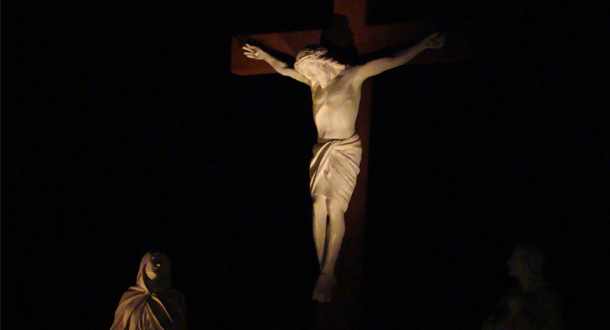
Scripture:
Reflection:
In our Gospel reading today, Jesus talks to His disciples about prayer. He tells them to trust that God knows what we need, and we do not need to convince God that we should be helped: “Your Father knows what you need before you ask him.”
And then Jesus tells His disciples how to pray, and we hear what we often refer to as the “Our Father,” or “The Lord’s Prayer.” Even though this is a prayer we recite many times, I don’t think we often appreciate how radical a prayer this is. For me, one of the most radical aspects of the prayer have to do with forgiveness. “… and forgive us our debts” is not so radical. We know we need forgiveness. It’s the next line that should startle us: “… and forgive us our debts, as we forgive our debtors.” (italics mine).
I don’t think it’s overstating it to say that forgiveness is one of the most basic ways we demonstrate our discipleship of Jesus. But for many in our world, especially during these times of division and “cancel culture,” forgiveness is seen as weak, or naïve, or simply unjust. We have to remember that forgiveness is not a condoning of bad behavior, nor is it a denial of what has happened. But it is necessary for the well-being of our soul, even as we work for justice.
I think that is why, after Jesus teaches the prayer, He says: “If you forgive others their transgressions, our heavenly Father will forgive you. But if you do not forgive others, neither will your Father forgive your transgressions.” I sometimes wrestle with this, because it seems to put the lie to God’s unconditional love for us. After all, Jesus died for us on the Cross while we were still sinners. The way I understand Jesus’ words here is to ask, “How can we take God’s forgiveness of us for granted while we withhold forgiveness from others?”
May we take Jesus’ command to forgive seriously, and help bring about reconciliation in our world.
Fr. Phil Paxton, C.P., is the local superior of the Passionist Community in Birmingham, Alabama.
